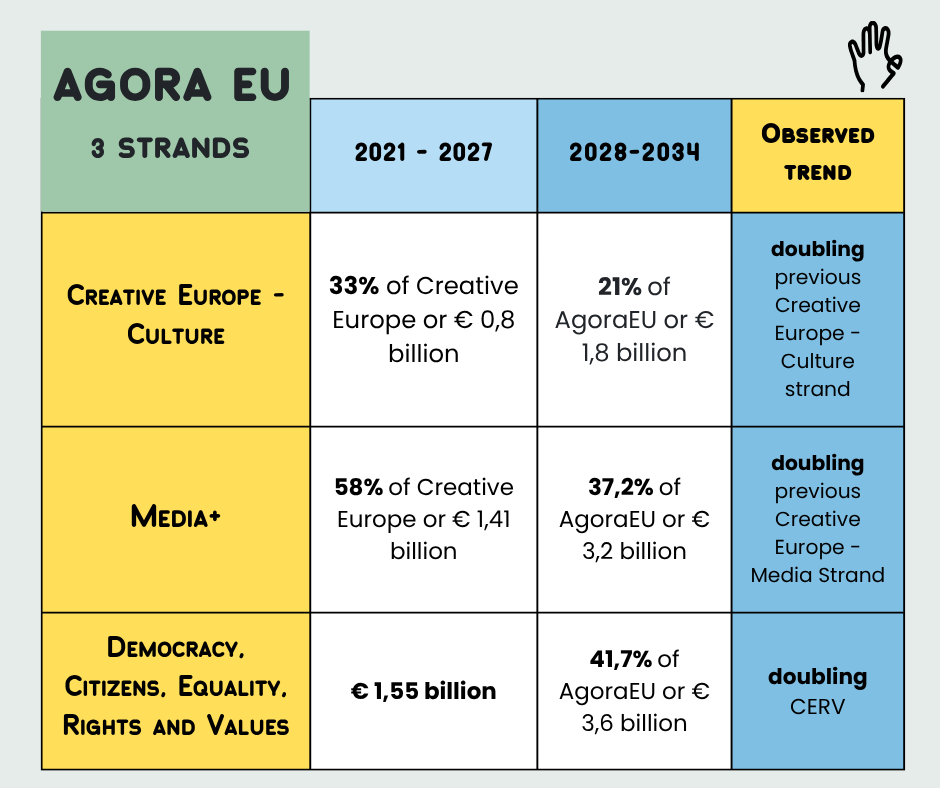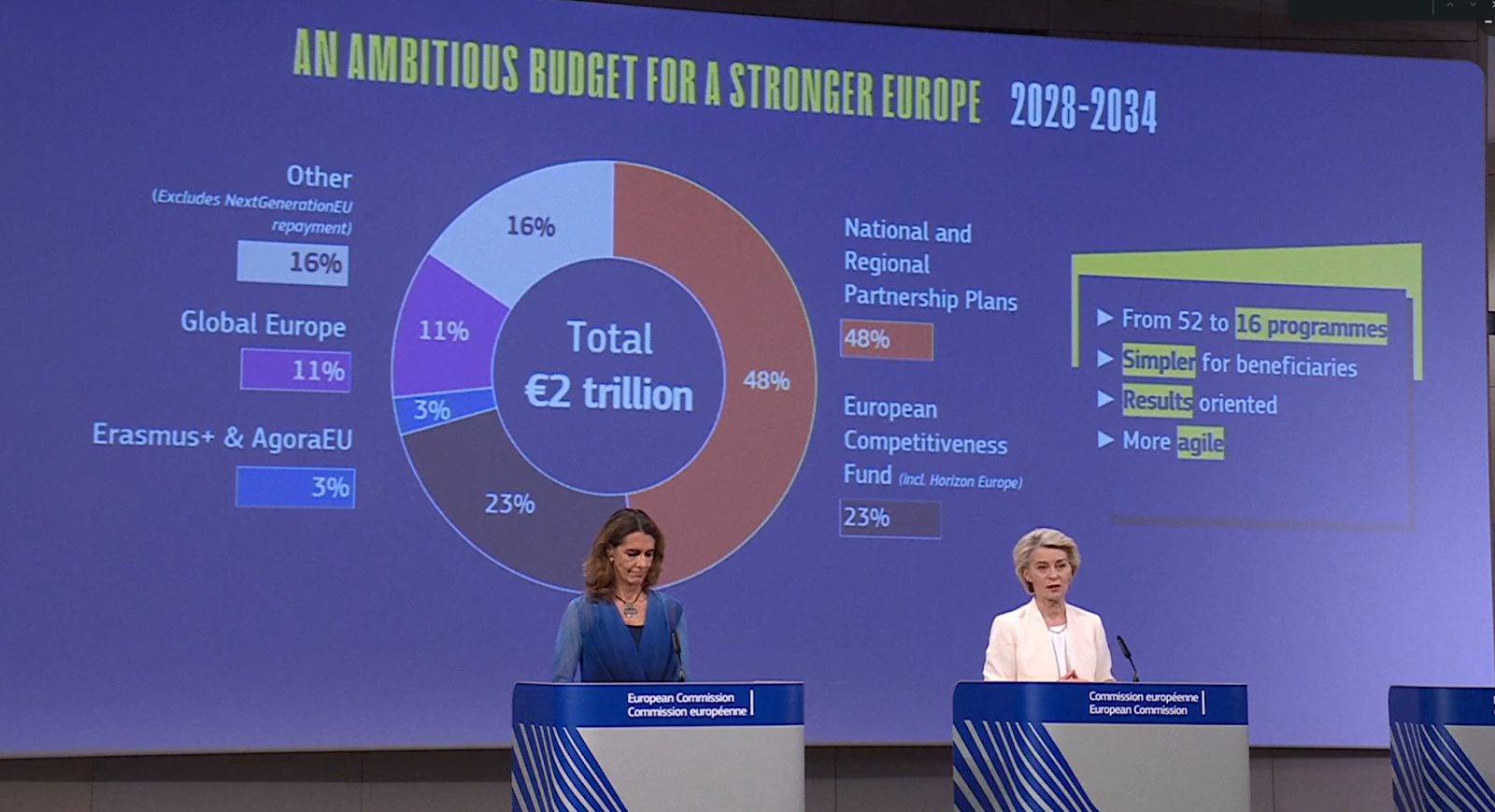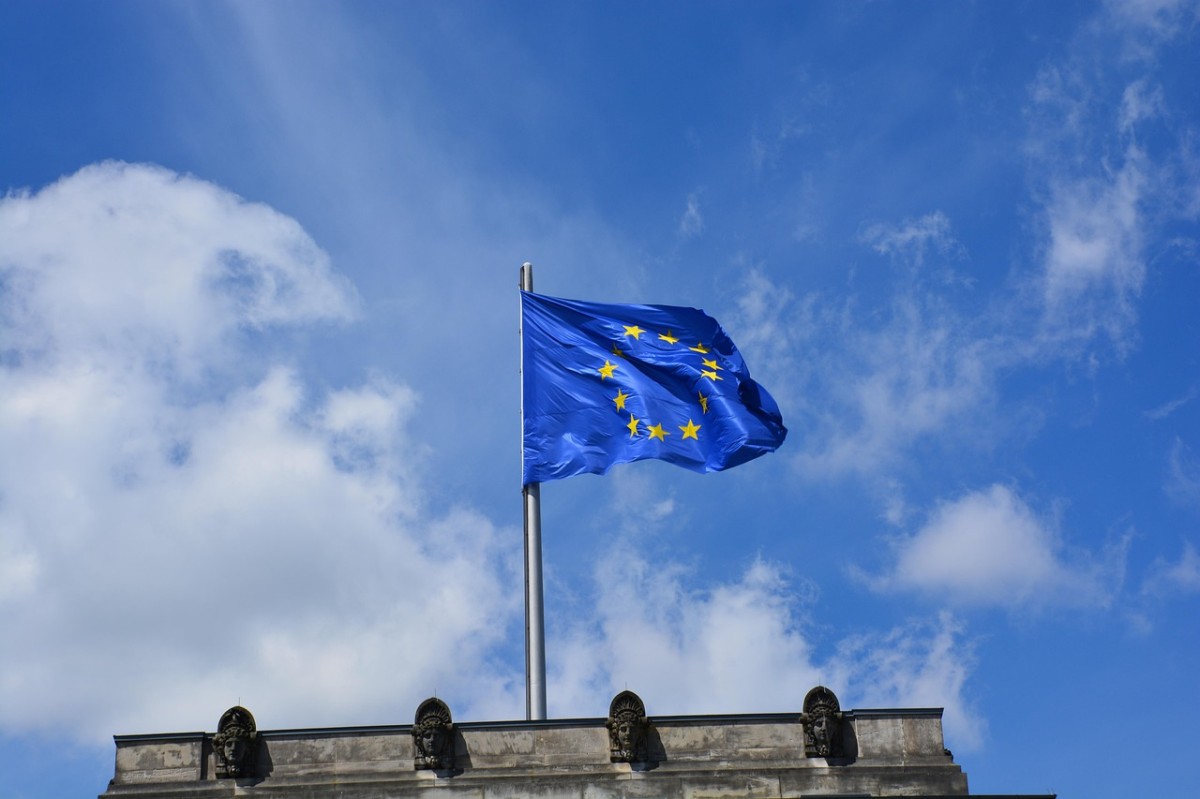Yesterday, President Ursula Von der Leyen announced the Commission’s proposal for the next MFF 2028-2034. The new budget is proposed to reach € 2 trillion and aims to be more “flexible, simple to access, targeted to where it matters most and more competitive”.
Moving from the current 52 to 16 new programmes, the proposal includes a new programme called AgoraEU with a budget of € 8,58 billion. AgoraEU is structured under three strands, Creative Europe - Culture, Media+ and Democracy, Citizens, Rights and Values. It combines thus the current strands of Creative Europe on Culture and Media, with the current CERV programme (Citizens, Equalities, Rights and Values).

The previous Cross-Sectoral Strand with a budget of 0,2 billion or 9% of the 2021-2027 Creative Europe does not appear among the titles in the plan for the next MFF.
On a first reaction, the doubling of the budget for culture and media was welcomed by the ecosystem. As noted by Culture Action Europe, the share of the budget for culture and media in the MFF budget was observed as reaching ~0.23% in 2021-2027 (2018 prices) and ~0.25% in 2028-2034 (2025 prices). The increase was noted as “the bare minimum needed to sustain and develop the European cultural sector". Concerns expressed include as well the symbolic belittling of culture in political terms, since it does not have anymore an autonomous budget heading.
On the Commission’s side: “A strong AgoraEU programme will promote shared values, including democracy, equality and the rule of law and support the European cultural diversity, its audiovisual and creative sectors, media freedom and civil society involvement.” as written in the presentation of the proposed budget.
The new AgoraEU programme appears under the priority of Competitiveness, Prosperity and Security, although not included as such per se, as shown in the following graph. The combination of AgoraEU with a reinforced Erasmus+ of € 40,83 billion account for 3% of the next MFF budget.

The name of the new programme AgoraEU derives from the greek word “agora”. Coming from the ancient times, “agora” means an open space, where a market was held, or a public place, where people can meet and freely exchange ideas, according to the Cambridge dictionary.
Reactions on the Overall MFF Proposal
Looking at the big picture beyond the AgoraEU programme, first reactions by the European Parliament on the overall proposal were not welcoming. During the presentation of the MFF proposal by Piotr Serafin, Commissioner for Budget, Anti-Fraud and Public Administration, MEPs strongly expressed their disagreement. Main points highlighted included the “re-nationalization of the budget” which leads member states to compete with each other, while losing the European dimension of common priorities. MEPs underscored their concerns on the budget cuts for agriculture and farmers subsidies. They also noted a lack of transparency and of a collaborative spirit on behalf of the Commission, as the only MFF-related written information available to them that far, were alleged leaks of Commission’s documents in the press.
“This was not a good start. Neither on content, nor on process” commented MEP Johan Van Overtveldt, Chair of the Committee on Budgets of the European Parliament, noting that the Commission should take under consideration that an absolute majority of the Parliament is needed for the adoption of the proposal.
Next steps include a negotiating toolbox to be presented by the Danish presidency by December 2025. First official reactions by the European Parliament and the Council are expected in autumn 2025 and overall negotiations are expected to conclude until the end of 2027.
Find more here
Image by kdg2020 from Pixabay - Free for use under the Pixabay Content Licence.
Image 2 - Snapshot from the MFF 2028 - 2034 presentation video - available here - © Copyright European Union - 2025.









